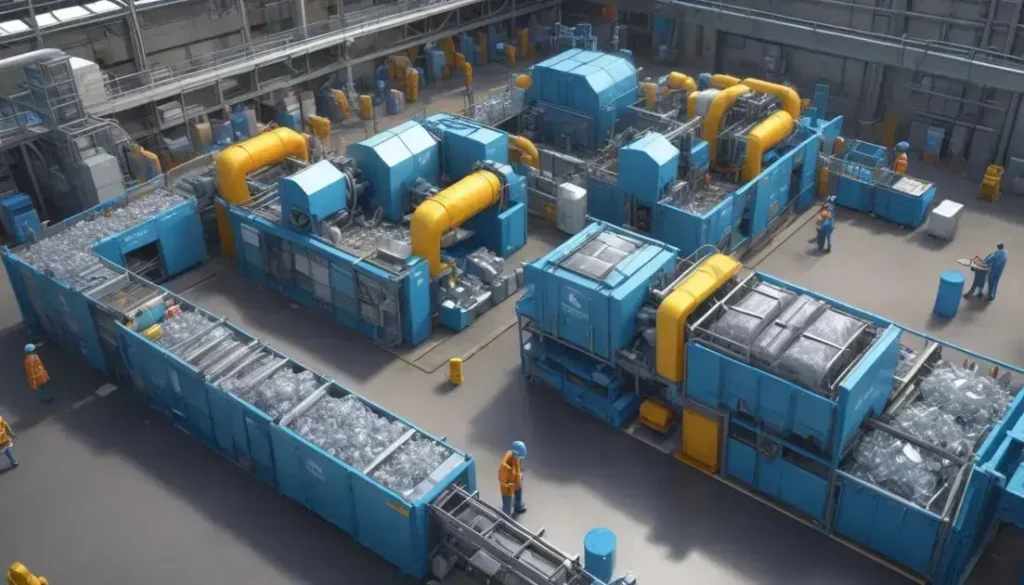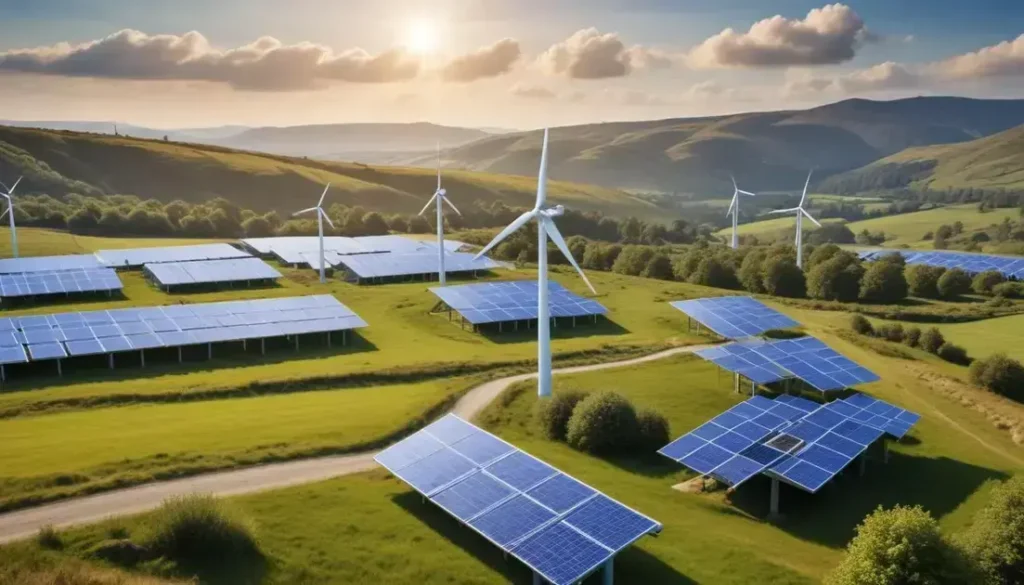The energy transition involves shifting from fossil fuels to renewable energy sources, and it is essential for Australian businesses to adopt sustainable practices to enhance competitiveness and support the country’s climate goals.
The recent changes at Quinbrook signify a pivotal moment for the Energy Transition landscape. Have you considered how these shifts can affect your business?
Overview of Quinbrook’s leadership change
Quinbrook’s leadership change marks a significant turning point in its strategic direction. With the appointment of new CEO Brian Restall, the company is poised to reinforce its commitment to energy transition initiatives. Under Restall’s guidance, Quinbrook aims to enhance its investment portfolio, focusing on sustainable projects that align with evolving market demands.
Moreover, this leadership shift highlights Quinbrook’s responsiveness to the rapidly changing landscape of renewable energy. By adapting to emerging trends, the company is better equipped to address the challenges posed by climate change and evolving regulatory frameworks. This proactive approach not only increases Quinbrook’s resilience but also creates new opportunities for collaboration with stakeholders across the sector.
As the energy market continues to evolve, Quinbrook’s refreshed leadership is expected to drive innovation and efficiency. Enhanced leadership dynamics will likely improve decision-making processes, fostering a culture of agility and adaptability. This cultural shift is crucial for advancing Quinbrook’s objectives, which include increasing the scale and scope of its sustainable energy investments.
Brian Restall’s impact as CEO
Brian Restall’s appointment as CEO of Quinbrook has marked a crucial shift in the company’s strategic outlook. With his extensive experience in the renewable energy sector, Restall brings a wealth of knowledge to the role, focusing on scaling investments in sustainable projects. His vision aims to place Quinbrook at the forefront of the energy transition.
Restall’s leadership style is characterised by a commitment to collaboration and innovation. He seeks to foster partnerships that drive efficiency and effectiveness within the industry. By prioritising stakeholder engagement, Restall aims to adapt Quinbrook’s strategies to meet the evolving market demands, creating a more resilient business model.
Under Restall’s direction, Quinbrook plans to expand its renewable energy portfolio significantly. This approach not only reflects a response to climate challenges but also positions the company to capture emerging opportunities in the global market. His focus on sustainable development aligns with the broader industry trends, ensuring that Quinbrook remains competitive.
Additionally, Restall is dedicated to enhancing corporate responsibility. By integrating sustainable practices into every aspect of the business, he aims to build a strong reputation for Quinbrook as a leader in ethical investment in the energy sector.
Insights on energy transition strategies
Energy transition strategies are at the forefront of global discussions as nations strive to reduce their carbon footprints. A comprehensive approach to energy transition can improve sustainability and efficiency across industries. Key strategies involve increasing the share of renewable energy sources, such as solar and wind, while phasing out reliance on fossil fuels.
To effectively manage this transition, companies must adopt innovative technologies. Integrating smart grids can optimise energy distribution, allowing for better management of renewable sources. Additionally, advancements in energy storage technologies play a crucial role, enabling consistent power supply despite the intermittent nature of renewable energy production.
Collaboration among different stakeholders is vital in the energy transition process. Governments, private sectors, and communities must work together to develop policies and incentives that encourage investment in green technologies. This not only fosters innovation but also ensures that transitions are equitable and just.
Furthermore, public awareness and education about the benefits of energy transitions can lead to increased consumer participation. Encouraging individuals to adopt more sustainable practices at home supports broader efforts to diminish the carbon impact and enhance energy efficiency.
Implications for Australian businesses
The ongoing energy transition has significant implications for Australian businesses, as they adapt to new market dynamics and regulatory requirements. As the country moves towards a low-carbon economy, companies must consider how renewable energy adoption can enhance their operational efficiency and sustainability.
Investment in renewable energy solutions not only mitigates environmental impact but also offers competitive advantages. Australian businesses that embrace these changes can access new revenue streams and improve their brand reputation. Consumers are increasingly prioritising sustainability, which influences purchasing decisions and loyalty.
Moreover, government policies aimed at promoting energy transition are likely to impact operations across various sectors. These policies can offer incentives for businesses to invest in clean technologies, making it more financially viable to implement sustainable practices. Companies that proactively engage with these policies will be better positioned to leverage available resources and funding.
However, navigating this landscape requires careful planning and strategic investment. Businesses must be willing to innovate and adopt new technologies, such as smart grids and energy storage solutions, to remain competitive. The capacity to adapt to arising challenges, such as fluctuating energy costs and regulatory changes, will define the success of Australian businesses in this evolving market.
Future outlook for Quinbrook in Australia
The future outlook for Quinbrook in Australia appears promising, especially in light of the increasing focus on sustainable energy solutions. With the growing demand for renewable energy, Quinbrook is well-positioned to capitalise on emerging opportunities within the energy transition landscape.
Under Brian Restall’s leadership, the company plans to expand its portfolio by investing in innovative projects that align with national and global sustainability goals. This strategy not only enhances Quinbrook’s competitive edge but also contributes to Australia’s commitment to reducing carbon emissions.
Partnerships and collaborations are integral to Quinbrook’s future strategy. By working closely with government bodies, businesses, and local communities, Quinbrook can foster a collaborative environment that promotes shared investment in clean technologies. This holistic approach will ensure that projects are not only viable but also beneficial for all stakeholders involved.
As technologies continue to evolve, Quinbrook is committed to staying at the forefront of energy innovation. The integration of smart technologies into their projects will bolster operational efficiency and drive down costs, making renewable energy options more accessible to a broader audience. Overall, Quinbrook’s future in Australia is set to be shaped by its proactive stance on sustainability and collaborative growth.
Looking Ahead: The Importance of Energy Transition
The energy transition is reshaping the landscape for businesses in Australia. As we move towards a greener future, embracing sustainable practices is not just beneficial—it’s essential for long-term success.
Companies like Quinbrook are leading the way, demonstrating how strategic investments in renewable energy can create new opportunities. By focusing on innovation and collaboration, businesses can enhance their competitiveness and resilience in a rapidly changing market.
As we look to the future, it is clear that companies that prioritise sustainability will not only thrive but also play a vital role in combating climate change. The path to a more sustainable Australia is a journey we all share, and together, we can make a significant impact.
In summary, now is the time for businesses to embrace the energy transition and take proactive steps towards sustainability.
Frequently Asked Questions
What is the energy transition and why is it important for Australian businesses?
The energy transition refers to the shift from fossil fuels to renewable energy sources. It is important for Australian businesses to embrace this change to reduce carbon emissions, improve sustainability, and remain competitive in a changing market.
How can Quinbrook contribute to Australia’s energy goals?
Quinbrook can contribute by investing in sustainable energy projects, promoting innovation, and collaborating with stakeholders to develop cleaner technologies that align with Australia’s commitment to reducing its carbon footprint.
What role do government policies play in energy transition?
Government policies can provide incentives for businesses to invest in renewable energy. These policies create a supportive environment that encourages companies to adopt sustainable practices and technologies.
How can businesses benefit from investing in renewable energy?
Investing in renewable energy can lead to lower operational costs, enhanced brand reputation, and new revenue streams, ultimately leading to long-term financial sustainability.
What are some challenges businesses might face during the energy transition?
Challenges include adapting to new technologies, navigating regulatory changes, and managing initial investment costs. However, proactive planning and innovation can help mitigate these challenges.
Why is collaboration important for successful energy transition?
Collaboration among businesses, governments, and communities ensures shared resources, knowledge, and goals, making the energy transition more effective and equitable for all stakeholders.


